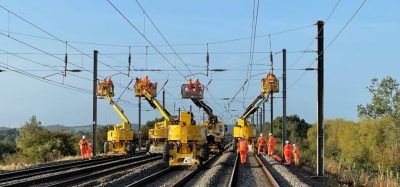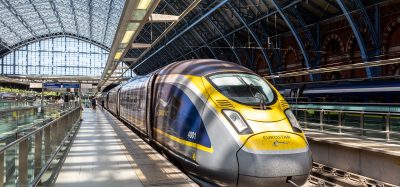Foreword: Belgium plans future growth
Posted: 28 January 2010 | | No comments yet
This year, Belgium will commemorate the 175th anniversary of the inauguration of the country’s first main line between Brussels and Malines.
This year, Belgium will commemorate the 175th anniversary of the inauguration of the country’s first main line between Brussels and Malines.
This year, Belgium will commemorate the 175th anniversary of the inauguration of the country’s first main line between Brussels and Malines.
However, it has not always been a time for celebration on Belgium’s railway network due to the harsh fact that it experienced an undeniable slump in growth, first seen in the 1950s. The network suffered under the increased development of road transport.
Even in the 1970s concerns about the environment and the rational use of energy were not enough to make the railways recover a competitive position.
It wasn’t until the 1970s that the improvement of Belgium’s railway network finally emerged as a strong notion in order to make the country’s railway sector a front-runner in opening up markets and strengthening its internal competition. In acting like this, the rail industry was soon to follow the same trends experienced by the road, airline and naval industries.


Etienne Schouppe, Secretary of State for Mobility, Belgium
Since 1991, numerous European regulatory framework projects have commenced in order to achieve the railway’s objectives. It is important that these frameworks must now be considered as opportunities or advantages, and not as constraints. The future development of the railway sector, and even the existence of the rail, relies on them.
It is very satisfying to observe that the international regulatory framework to achieve the liberalisation of the railway sector has been finalised by security and interoperability measures.
The regulation and the now dynamic position of the railway sector accounts for the two current axes of Belgian politics in terms of mobility.
It remains essential that rail, bearing in mind its quality as a basic instrument for mobility, contributes to the harmonious development of a more durable economy and society. As the results achieved during the Copenhagen summit have shown, the challenges ahead of us are impressive, particularly if reference is made to CO2 transport emissions and how they affect our environment. Growing traffic congestion which occurs in densely populated and urbanised areas, such as Belgium, cannot be overlooked and does not only have a negative impact on the environment, but equally causes a strain on economic levels, which represents a threat for the natural leadership of Belgium as a logistic centre and crucial turntable for Northwest Europe.
The issue of railway security is Belgium’s priority – an ambition to achieve ‘absolute security’. Railway security is an essential condition and one which precedes all other initiatives. All efforts will be focussed on delivering new technologies, especially the setting up of cost-effective control command systems and improving the training programmes of all security personnel – including the certification of train drivers.
Another main issue for Belgium is railway interoperability, and high-speed trains have played a key role in this aspect. This is why Belgium has committed itself to running high-speed trains for the European network.
In 20 years time, an interoperable high-speed rail network will be in operation in Belgium which will link the country to London, Paris, Amsterdam and Cologne and much further when working with the connections of neighbouring countries.
Belgium will ensure the presidency of the European Union during the second semester of 2010 and will take initiatives to guarantee their development, improve their interconnection and contribute to the rationalisation of their policy, by calling on the recent proposals of the European Commission.
Special attention will be paid to ‘green corridors’ which will guarantee ‘multimodality’. These actions efficiently prolong the new 2009-2012 programme in supporting combined transport for operating freight transfers from road to rail without harming, in any way, waterway transport which equally provides numerous ecological advantages.
Finally, the quality of services offered to clients contributes to overall excellence. In this respect, Belgian politics relies on two pillars: on the one hand is the temporary appointment of the public service mission pertaining to the inland train services, and on the other hand, the modernisation, development and the extension of the railway infrastructure.
The Belgian state will make use of very important financial means to promote the use of the railways, for both passenger and freight transportation.
Today, this effort is all the more justified since it coincides with the need to achieve a targeted growth of the economy and to promote durable mobility.








